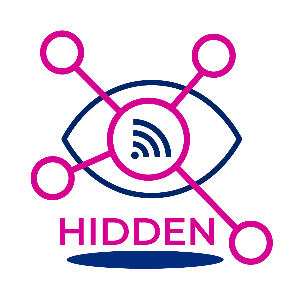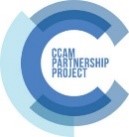A new EU-funded project— HIDDEN (Hybrid Intelligence for Advanced Collective Perception and Decision Making in Complex Urban Environments) officially launched on July 8th, in Athens. Its mission? To make European cities safer by enabling automated vehicles better detect what they currently can’t see— pedestrians, cyclists, and other road users hidden behind obstacles.
Coordinated by the Institute of Communication and Computer Systems (ICCS) and funded by a grant of approximately €5 million under Horizon Europe’s Cluster 5, HIDDEN is supported by the Connected, Cooperative and Automated Mobility (CCAM) Partnership. Over the next 36 months, the project will bring together 14 partners and 2 affiliated entities across 7 EU countries to tackle a key challenge in urban mobility: occlusions. In bustling city environments, parked cars, buildings, and even vegetation can obstruct a vehicle’s sensors, creating blind spots, that pose serious risks, especially for vulnerable road users (VRUs) like children, cyclists, or road workers. Current detection systems often struggle in such scenarios, with VRU recognition rates dropping below 65% when individuals are fully occluded.
HIDDEN addresses this challenge by leveraging and enhancing Collective Awareness using Vehicle-to-Everything (V2X) communication —where vehicles and infrastructure share sensor data – and artificial intelligence. This allows vehicles to build a more complete picture of their surroundings, collectively interpreting data from other vehicles, infrastructure, and even road users to see beyond what their own sensors can detect. What truly sets HIDDEN apart is the use of Hybrid Intelligence (HI)—a fusion of human and machine intelligence. This approach allows automated vehicles to not only detect hidden objects but also make decisions that are ethically and legally grounded and aligned with human behaviour.
“HIDDEN goes beyond conventional AI,” said Dr. Angelos Amditis, HIDDEN Coordinator and R&D Director at ICCS. “We’re bringing human judgement into the loop—so automated systems can act not just accurately, but wisely. By blending the precision of machines with human context, awareness, and ethics, we aim to make urban transport not only smarter but also safer and more socially attuned.
To test its approach, HIDDEN will focus on four high-risk urban scenarios: a child running from behind a parked car, a cyclist in mixed-traffic zones, a road worker obscured by vegetation, and a vehicle hidden at an unsignalised intersection. Each case reflects complex, real-world challenges where improved perception and ethically grounded decision-making could prove life-saving.
Beyond technical performance, HIDDEN’s CCAM systems are being designed to reflect human driving styles, uphold ethical standards, and meet emerging regulatory requirements. The project will also work closely with stakeholders, including EU type approval bodies and UNECE working groups, to align its results with future standards and policy development.
HIDDEN brings together a diverse group of partners with complementary strengths. The consortium includes leading research institutes and universities, SMEs specialising in AI and machine learning, major players in the automotive sector, type approval authorities, social science researchers, and industry associations involved in standardisation. This multidisciplinary team ensures that technical development is informed by real-world needs, regulatory insight, and a strong understanding of human and social factors—covering the full path from research to implementation.
At CUT, we are contributing the project’s core decision‑making stack — from short‑term trajectory‑prediction models to large‑language‑model and reinforcement‑learning policies trained with human feedback — culminating in a robust novel system that makes automated manoeuvres both understandable and trustworthy. Beyond the decision‑making stack, CUT co‑defines the project use cases and system architecture from a decision‑making perspective and helps shape the overarching ethical and legal framework for responsible AI in mobility. We also support system integration and extensive validation on prototype vehicles, test facilities and simulation platforms alongside our European partners. By embedding our long‑standing expertise in generative and trustworthy AI into HIDDEN, CUT aims to bridge machine precision with human‑centred insight — ensuring connected vehicles can “see the unseen” and choose the safest, most socially attuned path for every road user.
HIDDEN isn’t just about developing smarter vehicles—it’s about building trust, aligning technology with human values, and paving the way for safer streets in cities across Europe.
Editor’s Notes
|

|
HIDDEN (Hybrid Intelligence for Advanced Collective Perception and Decision-Making in Complex Urban Environments) is a Horizon Europe research and innovation project focused on advancing urban mobility through safer, smarter, and more ethical automation. At its core, HIDDEN develops collective awareness systems that enable connected and automated vehicles to detect occluded objects and vulnerable road users in real time. Using hybrid intelligence, the project combines machine with human intelligence to support decision-making that aligns with human driving styles and ethical principles. HIDDEN also addresses the legal, regulatory, and ethical challenges of AI in mobility, ensuring transparency and trust in how decisions are made. Field tests across Europe and virtual simulations will validate the technology in real-world scenarios. Through close collaboration with type approval authorities, standardisation bodies, and key stakeholders, HIDDEN aims to set new benchmarks for safe and socially responsible autonomous mobility in complex urban settings.
|

|
HIDDEN is part of the CCAM Association and falls under Cluster 5 within the Key Enabling Technologies family. The project addresses the topic “AI for advanced and collective perception and decision-making for CCAM applications.
|
|
|
Project Coordinator
|
Dr. Angelos Amditis, R&D Director
Institute of Communication & Computer Systems (ICCS)
|
|
Project Duration
|
36 months
1 July 2025 – 30 June 2028
|
|
Project No
|
101202228
|
|
EU funding
|
€4,997,139.75 (HORIZON-CL5-2024-D6-01-04)
Granting Authority: European Climate, Infrastructure and Environment Executive Agency (CINEA)
|
|
Website
|
https://www.hiddenproject.eu/
|
|
Social Media
|
LinkedIn: @HIDDEN EU PROJECT
YouTube: @HIDDENEUProject
|
|
Partners
|
Partners: 14 partners and 2 affiliated partners from academia, industry, and research across 7 EU countries.
- Institute of Communication & Computer Systems (Greece)
- LIBRA (United Kingdom)
- CTAG (Spain)
- Technische Hochschule Ingolstadt – THI (Germany)
- Albert-Ludwigs-Universitaet Freiburg – UFR (Germany)
- Technologiko Panepistimio Kyprou – CUT (Cyprus)
- Mosaic Factor (Spain)
- DENSO (Germany)
- Ustav Informatiky (Czech Republic)
- TÜV (Czech Republic)
- RENAULT (Spain)
- Universitat Politècnica de València – UPV (Spain)
- Seability Innovations (Greece)
- SAE Group Europe (Netherlands)
CIBOS (Greece) – Affiliated Entity
LIBRA AI (Greece) – Affiliated Entity
|
|
Contact
|
Angelos Amditis, Research and Development Director, ICCS
HIDDEN Coordinator
Ε-mail: a.amditis@iccs.gr
Elena Krikigianni, Scientific Project Manager, Seability Innovations
HIDDEN Communication and Dissemination Manager
Email: e.krikigianni@seability.eu
|
HIDDEN: A New EU Project Aims to Improve Urban Mobility by Helping Vehicles ‘See’ the Unseen
A new EU-funded project— HIDDEN (Hybrid Intelligence for Advanced Collective Perception and Decision Making in Complex Urban Environments) officially launched on July 8th, in Athens. Its mission? To make European cities safer by enabling automated vehicles better detect what they currently can’t see— pedestrians, cyclists, and other road users hidden behind obstacles.
Coordinated by the Institute of Communication and Computer Systems (ICCS) and funded by a grant of approximately €5 million under Horizon Europe’s Cluster 5, HIDDEN is supported by the Connected, Cooperative and Automated Mobility (CCAM) Partnership. Over the next 36 months, the project will bring together 14 partners and 2 affiliated entities across 7 EU countries to tackle a key challenge in urban mobility: occlusions. In bustling city environments, parked cars, buildings, and even vegetation can obstruct a vehicle’s sensors, creating blind spots, that pose serious risks, especially for vulnerable road users (VRUs) like children, cyclists, or road workers. Current detection systems often struggle in such scenarios, with VRU recognition rates dropping below 65% when individuals are fully occluded.
HIDDEN addresses this challenge by leveraging and enhancing Collective Awareness using Vehicle-to-Everything (V2X) communication —where vehicles and infrastructure share sensor data – and artificial intelligence. This allows vehicles to build a more complete picture of their surroundings, collectively interpreting data from other vehicles, infrastructure, and even road users to see beyond what their own sensors can detect. What truly sets HIDDEN apart is the use of Hybrid Intelligence (HI)—a fusion of human and machine intelligence. This approach allows automated vehicles to not only detect hidden objects but also make decisions that are ethically and legally grounded and aligned with human behaviour.
“HIDDEN goes beyond conventional AI,” said Dr. Angelos Amditis, HIDDEN Coordinator and R&D Director at ICCS. “We’re bringing human judgement into the loop—so automated systems can act not just accurately, but wisely. By blending the precision of machines with human context, awareness, and ethics, we aim to make urban transport not only smarter but also safer and more socially attuned.
To test its approach, HIDDEN will focus on four high-risk urban scenarios: a child running from behind a parked car, a cyclist in mixed-traffic zones, a road worker obscured by vegetation, and a vehicle hidden at an unsignalised intersection. Each case reflects complex, real-world challenges where improved perception and ethically grounded decision-making could prove life-saving.
Beyond technical performance, HIDDEN’s CCAM systems are being designed to reflect human driving styles, uphold ethical standards, and meet emerging regulatory requirements. The project will also work closely with stakeholders, including EU type approval bodies and UNECE working groups, to align its results with future standards and policy development.
HIDDEN brings together a diverse group of partners with complementary strengths. The consortium includes leading research institutes and universities, SMEs specialising in AI and machine learning, major players in the automotive sector, type approval authorities, social science researchers, and industry associations involved in standardisation. This multidisciplinary team ensures that technical development is informed by real-world needs, regulatory insight, and a strong understanding of human and social factors—covering the full path from research to implementation.
At CUT, we are contributing the project’s core decision‑making stack — from short‑term trajectory‑prediction models to large‑language‑model and reinforcement‑learning policies trained with human feedback — culminating in a robust novel system that makes automated manoeuvres both understandable and trustworthy. Beyond the decision‑making stack, CUT co‑defines the project use cases and system architecture from a decision‑making perspective and helps shape the overarching ethical and legal framework for responsible AI in mobility. We also support system integration and extensive validation on prototype vehicles, test facilities and simulation platforms alongside our European partners. By embedding our long‑standing expertise in generative and trustworthy AI into HIDDEN, CUT aims to bridge machine precision with human‑centred insight — ensuring connected vehicles can “see the unseen” and choose the safest, most socially attuned path for every road user.
HIDDEN isn’t just about developing smarter vehicles—it’s about building trust, aligning technology with human values, and paving the way for safer streets in cities across Europe.
Editor’s Notes
|

|
HIDDEN (Hybrid Intelligence for Advanced Collective Perception and Decision-Making in Complex Urban Environments) is a Horizon Europe research and innovation project focused on advancing urban mobility through safer, smarter, and more ethical automation. At its core, HIDDEN develops collective awareness systems that enable connected and automated vehicles to detect occluded objects and vulnerable road users in real time. Using hybrid intelligence, the project combines machine with human intelligence to support decision-making that aligns with human driving styles and ethical principles. HIDDEN also addresses the legal, regulatory, and ethical challenges of AI in mobility, ensuring transparency and trust in how decisions are made. Field tests across Europe and virtual simulations will validate the technology in real-world scenarios. Through close collaboration with type approval authorities, standardisation bodies, and key stakeholders, HIDDEN aims to set new benchmarks for safe and socially responsible autonomous mobility in complex urban settings.
|

|
HIDDEN is part of the CCAM Association and falls under Cluster 5 within the Key Enabling Technologies family. The project addresses the topic “AI for advanced and collective perception and decision-making for CCAM applications.
|
|
|
Project Coordinator
|
Dr. Angelos Amditis, R&D Director
Institute of Communication & Computer Systems (ICCS)
|
|
Project Duration
|
36 months
1 July 2025 – 30 June 2028
|
|
Project No
|
101202228
|
|
EU funding
|
€4,997,139.75 (HORIZON-CL5-2024-D6-01-04)
Granting Authority: European Climate, Infrastructure and Environment Executive Agency (CINEA)
|
|
Website
|
https://www.hiddenproject.eu/
|
|
Social Media
|
LinkedIn: @HIDDEN EU PROJECT
YouTube: @HIDDENEUProject
|
|
Partners
|
Partners: 14 partners and 2 affiliated partners from academia, industry, and research across 7 EU countries.
- Institute of Communication & Computer Systems (Greece)
- LIBRA (United Kingdom)
- CTAG (Spain)
- Technische Hochschule Ingolstadt – THI (Germany)
- Albert-Ludwigs-Universitaet Freiburg – UFR (Germany)
- Technologiko Panepistimio Kyprou – CUT (Cyprus)
- Mosaic Factor (Spain)
- DENSO (Germany)
- Ustav Informatiky (Czech Republic)
- TÜV (Czech Republic)
- RENAULT (Spain)
- Universitat Politècnica de València – UPV (Spain)
- Seability Innovations (Greece)
- SAE Group Europe (Netherlands)
CIBOS (Greece) – Affiliated Entity
LIBRA AI (Greece) – Affiliated Entity
|
|
Contact
|
Angelos Amditis, Research and Development Director, ICCS
HIDDEN Coordinator
Ε-mail: a.amditis@iccs.gr
Elena Krikigianni, Scientific Project Manager, Seability Innovations
HIDDEN Communication and Dissemination Manager
Email: e.krikigianni@seability.eu
|


